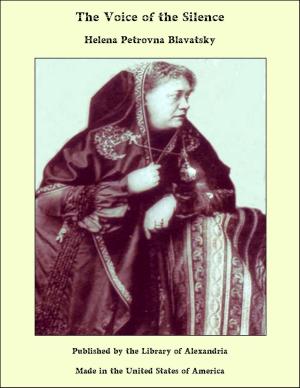| Author: | Edna Lyall (Ada Ellen Bayly) | ISBN: | 9781465625656 |
| Publisher: | Library of Alexandria | Publication: | March 8, 2015 |
| Imprint: | Language: | English |
| Author: | Edna Lyall (Ada Ellen Bayly) |
| ISBN: | 9781465625656 |
| Publisher: | Library of Alexandria |
| Publication: | March 8, 2015 |
| Imprint: | |
| Language: | English |
Roy Boniface turned away with a smile, understanding her feeling well enough, and Cecil, with her back to the chattering tourist throng, let her eyes roam over the shining waters of the fjord to the craggy mountains on the further shore, whose ever-varying forms had been delighting her since the early morning. She herself made a fair picture, though her beauty was not of the order which quickly draws attention. There was nothing very striking in her regular features, fair complexion, and light-brown hair; to a casual observer she would have seemed merely an average English girl, gentle, well-mannered, and nice-looking. It was only to those who took pains to study her that her true nature was revealed; only at times that her quiet gray eyes would flash into sudden beauty with the pleasure of meeting with some rare and unexpected sympathy; only in some special need that the force of her naturally retiring nature made itself felt as a great influence. Cecil had passed a year of emancipated girlhood, she had for a whole year been her own mistress, had had time and money at her disposal and no special duties to take the place of her school-work. It was the time she had been looking forward to all her life, the blissful time of grown-up freedom, and now that it had come it had proved a disappointing illusion. Whether the fault was in herself or in her circumstances she did not know; but like so many girls of her age she was looking out on life with puzzled eyes, hardly knowing what it was that had gone amiss, yet conscious of a great want, of a great unrest, of a vague dissatisfaction which would not be reasoned down. “Cecil is looking poorly,” had been the home verdict; and the mother, not fully understanding the cause, but with a true instinct as to the remedy, had suggested that the brother and sister should spend a month abroad, grieving to lose Cecil from the usual family visit to the seaside, but perceiving with a mother’s wisdom and unselfishness that it was time, as she expressed it, for her young one to try its wings. So the big steamer plied its way up the fjord bearing Cecil Boniface and her small troubles and perplexities to healthy old Norway, to gain there fresh physical strength, and fresh insights into that puzzling thing called life; to make friendships, spite of her avowed unsociableness, to learn something more of the beauty of beauty, the joy of joy, and the pain of pain.
Roy Boniface turned away with a smile, understanding her feeling well enough, and Cecil, with her back to the chattering tourist throng, let her eyes roam over the shining waters of the fjord to the craggy mountains on the further shore, whose ever-varying forms had been delighting her since the early morning. She herself made a fair picture, though her beauty was not of the order which quickly draws attention. There was nothing very striking in her regular features, fair complexion, and light-brown hair; to a casual observer she would have seemed merely an average English girl, gentle, well-mannered, and nice-looking. It was only to those who took pains to study her that her true nature was revealed; only at times that her quiet gray eyes would flash into sudden beauty with the pleasure of meeting with some rare and unexpected sympathy; only in some special need that the force of her naturally retiring nature made itself felt as a great influence. Cecil had passed a year of emancipated girlhood, she had for a whole year been her own mistress, had had time and money at her disposal and no special duties to take the place of her school-work. It was the time she had been looking forward to all her life, the blissful time of grown-up freedom, and now that it had come it had proved a disappointing illusion. Whether the fault was in herself or in her circumstances she did not know; but like so many girls of her age she was looking out on life with puzzled eyes, hardly knowing what it was that had gone amiss, yet conscious of a great want, of a great unrest, of a vague dissatisfaction which would not be reasoned down. “Cecil is looking poorly,” had been the home verdict; and the mother, not fully understanding the cause, but with a true instinct as to the remedy, had suggested that the brother and sister should spend a month abroad, grieving to lose Cecil from the usual family visit to the seaside, but perceiving with a mother’s wisdom and unselfishness that it was time, as she expressed it, for her young one to try its wings. So the big steamer plied its way up the fjord bearing Cecil Boniface and her small troubles and perplexities to healthy old Norway, to gain there fresh physical strength, and fresh insights into that puzzling thing called life; to make friendships, spite of her avowed unsociableness, to learn something more of the beauty of beauty, the joy of joy, and the pain of pain.















